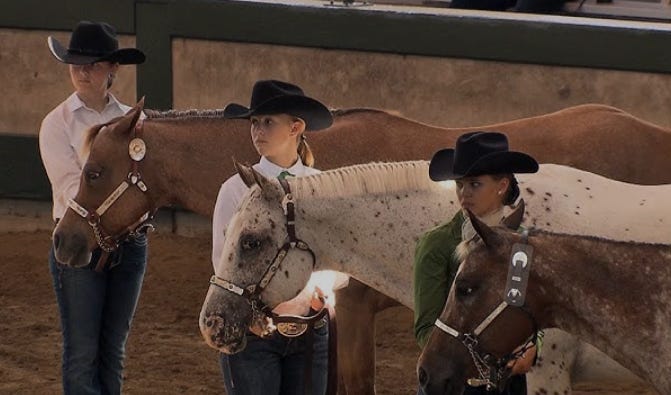A Magical Day at the Iowa State Fair
TFP revisits a "Midwestern rite of summer," and the grace and determination of a 13-year-old Iowan, her pony, T.J., and quarter horse, Rosey.

Some Pig! A Midwestern Rite of Summer
FROM THE ARCHIVES
The Wall Street Journal, Aug. 16, 2006
By Michael Judge
DES MOINES, IOWA — In an America where Las Vegas has become the new Disneyland, and being a "winner" is too often about luck and greed rather than grace and hard work, the Iowa State Fair stands out as a truly family-friendly destination—and a great deal of fun to boot.
When I say fun I'm not talking about headliners like Brad Paisley and James Taylor, who sold out the grandstand here last week and by all accounts gave fine shows. I mean, instead, the 10 days of back-to-back livestock and food competitions, a cow sculpted entirely of butter, fresh-squeezed lemonade by the gallon and pork chops on a stick. I mean beer tents and deep-fried Oreos, a 1,199-pound hog named Waldo ("Some pig," indeed!) and men who wrestle rare Bengal …
Keep reading with a 7-day free trial
Subscribe to The First Person with Michael Judge to keep reading this post and get 7 days of free access to the full post archives.
